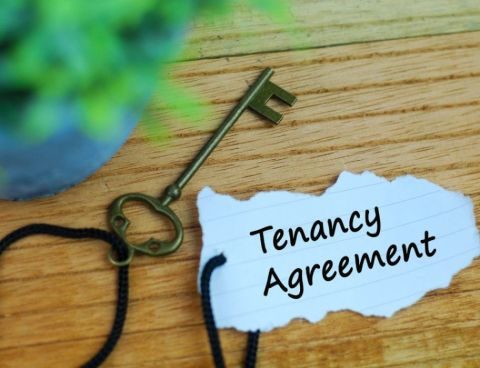Key aspects of tenancy agreements, and what this means for both parties
A tenancy agreement is a legally binding contract between landlord and tenant, which outlines the rights and responsibilities of both parties prior to the tenant moving into the property.
The tenancy agreement is a tailored contract between both parties, agreeing to adhere to these, as long as they do not conflict with the law. In fact, both tenant and landlord have responsibilities outlined by law, so it is important that both parties know their obligations in this respect too.
Below, we explain the key aspects of tenancy agreements, and what this means for both parties. For more information about tenancy agreements and what they mean for your duties as a landlord, the experts at AST Assistance are just a phone call away. Call us today on 01706 619 954, email info@ast-assistance.com, or fill in our online form to request a call back.
Evergreen legal responsibilities
Whether or not it is outlined in the tenancy agreement, the landlord and tenant have certain responsibilities. These include:
- Ensuring that the properties are safe from health hazards
- Safely installing and maintaining electrical and gas equipment
- Providing an Energy Performance Certificate
- Protecting your tenant’s deposit in a government-approved scheme
- Verifying that your tenant has the right to rent your property if it’s in England
- Providing your tenant with a copy of the ‘how to rent’ checklist when they start renting from you


Different types of tenancy agreements
A tenancy agreement is simply a contract between you and your tenant. Contrary to popular belief, it does not have to be written down; an oral agreement is just as valid. An oral agreement becomes valid once the landlord accepts rent from a tenant and allows them access to the property. However, should a dispute arise, the terms of a verbal agreement can be tougher to prove.
Tenancies are either fixed-term (i.e. a set period of time is determined) or periodic (running on a weekly basis or monthly basis). Both of these types require tenancy agreements, but the terms may naturally differ - for example, when a tenancy may be terminated, or how often rent should be paid.
What to include in a tenancy agreement
A tenancy agreement for landlords helps them to clearly set out the responsibilities of the tenant, and the rules that they must follow. Such important information often includes:
- The names of all individuals involved in the tenancy
- The rent amount and how it will be paid
- Details on how and when the rent will be reviewed
- Information about how the rent will be protected
- Terms outlining when the deposit can be fully or partly withheld, for example, in case of repair
- The property address
- The tenancy start and end dates
- The tenant or landlord's obligations
- The bills for which the tenant is responsible
By including the essential information above, there will be a clear understanding of the most important details for the day-to-day obligations of each party. These are also the most common leads to disputes between tenant and landlord, so having this agreement in place will help to reduce the risk of any confusion or ambiguity.
Further information that can prove beneficial to both parties in the tenancy agreement includes:
- If the tenancy can be terminated before the end date, and how this can be done
- The party responsible for minor repairs and maintenance (aside from those for which the landlord is legally responsible)
- If the property can be sublet or have other occupants
- Any term within the agreement must be reasonable and legally compliant
If you want to make changes to the tenancy agreement, you must acquire approval from your tenants.
Find out more about tenancy agreements
For more information on tenancy agreements, including what to include within and how to deal with disputes, get in touch with the specialist team in tenancy agreements for landlords at AST Assistance. Speak to us today by calling 01706 619 954, emailing info@ast-assistance.com, or filling in our online form to request a call back.
Tenancy Management
